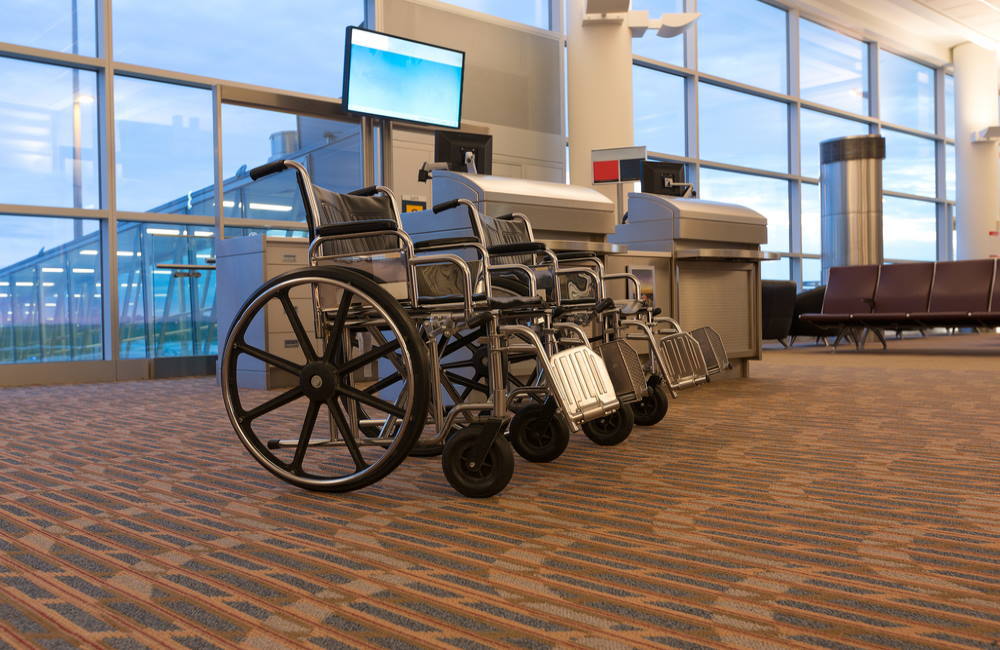
Every person with a disability has protected rights to travel in the United States and much of the Western world, including popular destinations in Europe. They can make their journey more enjoyable by taking steps to simplify special needs air travel and follow proven disabled travel tips.
The following offers some of those tips for disabled travelers that can help manage common issues that arise during air travel. In some cases, those with mobility issues or senior travelers benefit from traveling with a flight nurse who provides professional medical care during the flight (as well as handling all the travel arrangements).
Tips for Disabled Travelers
While it’s impossible to anticipate the needs of every traveler, the following tips cover some of the most common issues faced by disabled travelers.
Consult With Your Physician
Before starting the process of planning and booking a trip, it’s important to consult with your physician. They can let you know whether you are healthy enough to make a long journey, and also provide tips of their own to address any special needs you have.
Keep Medication With You
One of the most important issues to manage – and one that can simply special needs air travel – is having a plan for carrying medicine. The first issue is to ensure you take enough medication for the entire trip, as well as get information on where you can get refills in case you lose any medication. Another important tip is to take all medications needed for the trip in a carry-on bag so you always have it with you.
Know Your Rights
As mentioned above, disabled travelers are protected by law when they travel. The U.S. government has put together an Airline Passengers With Disabilities Bill of Rights that covers the fundamental rights of air travelers under the Air Carrier Access Act. The European Union also provides information on the rights for travelers with disabilities or mobility issues. Knowing these rights can simplify special needs air travel because you will go into your journey knowing the details of how you are protected under law.
Plan Ahead
Planning is important for all travelers, but especially those with disabilities or mobility issues. That includes ensuring that all accommodations for your trip – hotels, cruise ships, tours – are compliant with laws governing access to those with disabilities. That’s not an issue in the United States, but you want to double check any foreign destinations. There’s a long list of issues to consider when planning for a trip, including choosing the right clothes, managing medications, dealing with security (especially if you have a wheelchair or medical equipment), arranging to get the most convenient seats during your flight, and transportation to and from airports, hotels and other destinations. These are areas where an RN Flight Coordinator can manage the arrangements.
Consider Getting Medical Insurance
When people think about insuring themselves for a trip, they typically are considering travel insurance that covers them for financial losses, such as if they lose baggage. However, medical insurance is a separate issue. It’s an option to consider if you want to protect yourself in case of accidents, injuries or a medical issue arising during your trip.
Provide Advance Notice to Airline
Some airlines require that travelers with special needs provide 48 hours of advance notice if they require certain types of services, equipment or accommodations. These range from hooking up respirators to the aircraft electrical power to needing a special onboard wheelchair. You may also request boarding first. It’s helpful to contact the airport or the TSA about any special considerations needed for getting through security.
Arrive Early, Check Information
Passengers with mobility issues should arrive at the airport as early as possible (an hour before the recommended arrival time, if possible) to allow the time needed to check baggage, go through security and reach the gate on time for boarding. Check all flight information before leaving home, and also once you arrive at the airport, just to ensure there has not been a change in flight time or the departing gate.
These tips can simplify special needs air travel and make your flight more enjoyable. By planning ahead and getting professional help if needed, those with disabilities and mobility issues can travel safely.
